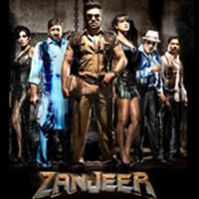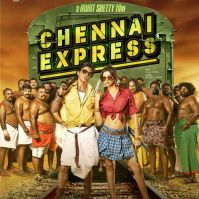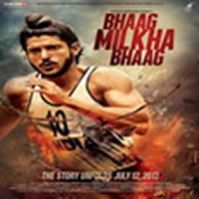Taare Zameen Par

"Kabhi Baatein Jaise Daadi Naani,
Kabhi Cheekhein Jaise Mumm Mumm Paani
Kabhi Ban Jaaye Bhole Sawaalon Ki Jhadi…"
How?! How does one be so beautifully simple, yet so scrupulously articulate?! How can one hit the nail on its damned head with every word that's scripted; every verse of poetry written; every move made on the screen; and every note hit while singing?!
This is what a connoisseur of art will wonder while watching Taare Zameen Par. The marvelous piece of art is Aamir Khan's directorial debut, and is a concrete example of his excellence and expertise in the field of film making.
The movie is about a dyslexic child, Ishan Awasthy (played by Darsheel Safary), and his fight against the tide of competition that has seeped into the day-to-day lives of children these days. Although the movie takes the route of a dyslexic child, it fantastically also takes on the sensitive issue of our attitude towards mentally retarded children, and amazingly universalises the concept to make it relatable to a perfectly normal child's life too. Thus the film manages touching every sensitive heart, irrespective of the person's caste, creed, age, sex, etc
Writing a review only about the music of the movie is impossible. The music is such an integral, inseparable part of the film that it is impossible to detach one from the other. The theme, the music, the performances, the screenplay and the direction come forth as a complete entity- a single unit, which makes the film a beautiful phenomenon to be experienced. It's like a talented artist's beautiful interpretation of the rainbow. Isolate one single colour from the painting, and you won't be able to appreciate it anymore.
The behind-the-scenes-hero of the movie is Prasoon Joshi. His poignant lyrics are arguably the main reason for the movie to be so emotionally provoking. The beauty of his lyrics is the sheer innocence of thought, coupled with meticulous, in-depth analysis of the psyche of the subject matter in hand.
It's very difficult to match lyrics of such par excellence, with equal brilliance in music; and Shankar Ehsan Loy have made it look simple. Considering what the man (Shankar Mahadevan) is capable of, it must have been a difficult task for him to keep the vocals simple and not too ornate; but yet such, that will touch the heart. The composition of each song compliments the lyrics beautifully, and the best part is that it plays the biggest role by letting the lyrics of the songs dominate the scene, for the simple reason, that that was the need of the hour. Also, hats off to the trio for keeping the music just right. It's not too light and frivolous, nor is it heavily influenced by the classical schools of thought. It's just the perfect blend of Western and Indian styles. It's not music for music's sake, but there for a reason.
Jame Raho It's the first song that one listens to, while watching the movie. The song establishes the equation of Ishan Awasthy in contrast with his family- his father (Nandkishore Awasthy) and his brother (Yohan Awasthy). Ishan's paradoxical attitude comes forth very evidently through the arrangement of the composition. One could say that the first half of the song is pure Veer Ras, where Ishan's family is virtually on their toes, in the battlefield.
Haath Mein File Man Mein Dum Meelon Meel Chalenge Hum
Har Muskil Se Takrayenge Tuss Se Muss Na Honge Hum…
The father- typical stressed out corporate; The mother- typical sacrificing, multi-tasking homemaker of the house; and elder brother- typical teenager, pressurised to be the first ranker, be it studies or sports.
Ye Omlet Par Hi Jeete Hain Ye Tonic Saare Peete Hain
Waqt Pe Sote Waqt Pe Khate Taan Ke Seena Badhte Jate
In contrast is the protagonist, Ishan Awasthy, who is a laid-back, chilled out lad, who wants to enjoy life and takes his own sweet time in doing whatever he does. The contrast is potrayed by a sudden change in the instruments- from hard pumping drums, and distortion on electric guitars, to soft and soothing tabla and relaxing sitar playing.
Yahaan Alag Andaz Hai, Jaise Chhidta Koi Saaz Hai
Har Kaam Ko Taala Karte Hain, Ye Sapne Paala Karte Hain
Here Ishan is shown getting up, stretching, lavishly in his own time. The song again goes into the hard pumping beats, and the chorus changes from "Duniya ka Naara Jame raho!" to "Kyon Duniya ka Naara Jame raho?!" where Ishan is shown frustrated at the unnecessary over-stressed lives that people lead today.
All in all, a song which brilliantly sets the stage, and propels the course of the movie. Again, as mentioned before, the plot, the music and the lyrics are so amazingly in sync, that it's impossible to separate one from the other.
Mera Jahaan
The second song in the movie, and another example of SEL's ability of reading into the director's mind, and delivering exactly what is required. The song in the movie portrays the constant quest and want in a child's life, to be free, independent, and liberated.
Open Eyed How I Run, How I Run To The Other Side,
Then I Glide Like A Bird, I Just Want To Be…
The highlight of the song is the use of drums. The drums and the chorus have been exploited to communicate a sense of freedom and liberation from the mundane.
Udne Ko Sau Pankh Diye Hain, Chadhne Ko Khula Aasma
Mudne Ko Hai Karvat Karvat, Aur Badhne Ko, Mera Jahaan
The drumming pattern (Rock Ballad) is very similar to a recent hit by Kailash Kher, Teri Diwani. The strumming of the acoustic guitars, and the drumming makes the listener tap his feet, and sway to the beat.
The composition and the chords are also very intelligently used. There is a very small part of the pad chords doing an unconventional progression, but it's used just as much as a pinch of salt in soup. Vishal Dadlani's husky voice also does justice to the mood of the song. The voice of kids is also used very effectively, to put in their perspective, bring in a flavour of innocence and genuineness to the song, and make it more appealing. The last bit is a universal appeal to all- young and old- to live their childhood to the fullest and to let their children live it to the fullest.
Bachpan Ke Din Chaar, Naa Aaenge Baar Baar,
Jee Le Jee Le Mere Yaar, Jeb Khaali Toh Udhaar, Jee Zindagi…
Again, in this song, there are moments where the video is so perfectly in sync with the music, that it is actually overwhelming. Like for example, when the drop of paint falls on Ishan's cheek, and simultaneously the drum roll, and the chorus starts off… one gets gooseflesh looking at something so well thought of. Now you know why the fact of the movie being "one single Entity" has been harped on since the beginning.
Maa
Probably one of the best written songs in a long long time. With the arrival of this song in the movie, throats start having lumps, and tears start flowing. Prasoon Joshi has delved into the mind of the child- his loneliness, his fear, his ego, and his trepidations. The thought process of an eight-nine year old is very well read by the man, and is perfectly penned.
Main Kabhi Batlata Nahin, Par Andhere Se Darta Hoon Main Maa
Yun To Main, Dikhlata Nahin, Teri Parwaah Karta Hoon Main Maa
Tujhe Sab Hai Pata, Hai Na Maa; Tujhe Sab Hai Pata… Meri Maa.
On the other hand, SEL, once again, do complete justice to the song. Even though the pattern of the song is Western, Shankar's rendition of the song, and the contemporary lyrics used capture the essence of the mood and the feel required.
The composition also uses pauses very effectively. After every second "tujhe sab hai pataa…" there is a small meaningful pause, and then "meri maa" follows, accompanied with soft drums. Just plain overwhelming!
The song uses interesting contrasts. The bridge of the song has comparatively heavy instrumentisation due to the feel of a child being scared because of the speed of the swing he's sitting on; and then it suddenly softens with the lines
Un (Papa) se Main Yeh Kehta Nahin, Par Main Seham Jaata Hoon Maa
Chehre Pe Aane Deta Nahin, Dil Hi Dil Mein Ghabraata Hoon Maa
Tujhe Sab Hai Pata Hai Naa Maa, Tujhe Sab Hai Pata… Meri Maa.
and thus makes the song immensely effective.
In this whole deal, it's important not to forget Shankar's soothing heartfelt voice. It really serves as a catalyst in the song to bring up the emotions stongly.
Bheja Kum
Another purely contextual song. The song portrays the struggle that the protagonist goes through while in exile, at Panchgini. The teachers are all frustrated with the kid, and thus the song.
Kyun Rehte Phissadi, Kyun Handwriting Raadi?
Kyun Homework Adhura, Kyun Dhyaan Nahin Poora?
Hard core use of distortion on the electric guitars together with the chorus helps convey the warped state of mind that the child starts getting into, due to the pressure and the stress he undergoes.
The use of
Idiot Duffer Lazy Crazy
rhythmically create an unusual loop which helps the viewer understand the psyche of the child.
Also, the mnemonic devices of the teachers' voices
This Child Can Drive Anybody Mad, Someone Please Call Up His Dad
Tumhara Problem Kya Hai Beta?
Moorkh Shiromani!
are effective not only during, but also after the movie ends.
Bum Bum Bhole
The post-interval movie starts off. With this song, Aamir Khan enters the plot of the movie as the Messiah for the children. His "Patch Adams" attitude towards life, and the gibberish that he talks (a plug-in by our very own Shankar) at the start of the song, very well establishes Ram Shankar Nikumbh's carefree charecter in this song.
Very symbolically the film dresses Aamir Khan as a character from a fairy tale, and gives him a small flute, resembling that of the piped piper. He talks about breaking conventions in the song, compels them to think differently and thus is shown as a fresh breath of air for the kids.
Bhala Machhliyan Bhi Kyun Udti Nahin,
Aise Bhi Socho Na.
Socho Sooraj Roz Nahaye Ya
Baal Bhigoke Yeh Budhoo Banaye Hume
Yeh Saare Taare Timtimaye
Ya Phir Gusse Mein Kuch Badbadate Rahein
The song also talks philosophy with lyrics like
Aisi Rangon Bhari Apni Duniya Hai Kyun
Socho To Socho Na
Pyar Se Chun Ke In Rangon Ko Kisi Ne Sajaya Yeh Sansaar Hai
Jo Itni Sundar Hai Apni Duniya Upar Wala Kya Koi Kalakaar Hai
Thus, apart from being a fun filled song, it also makes kids think about deeper matters of the world they live in.
Shaan's bright voice, with the catchy beats used, make the song worthy of attention, and brings in the fun element in the album.
Taare Zameen Par (Title Track)
A personal favourite of many from the album. The song is a masterpiece where the lyrics and the melody combine to give a holistic song, as a single unit. The lyrics vividly remind one of Gulzar's style of writing (which is a huge compliment). Prasoon Joshi has again amazed his audience with absolute beauty, simplicity, innocence and accuracy of ideas and articulation.
Jaise Aankhon Ki Dibiya Mein Nindiya, Aur Nindiya Mein Meetha Sa Sapna
Aur Sapne Mein Mil Jaaye Farishta Sa Koi
Jaise Rangon Bhari Pichkari, Jaise Titliyan Phoolon Ki Kyari
Jaise Bina Matlab Ka Pyara Rishta Ho Koi
Going back to the start of the review, it just puts one in a state of incredulity that how can one be so precise in one's use of language?! The poetry is just a priceless work of art.
Sannatey Mein Hansee Ke Jaise, Sooney Hothon Pe Khushi Ke Jaise
Yeh Toh Noor Hain Barse Gar Teri Kismat Ho Badi
In the context of the film, the song showcases Aamir's involvement in the school for the mentally retarded.
It creates a feeling of respect towards children lesser fortunate than us, and provokes a sense of responsibility in oneself.
Prasoon Joshi creates beautiful imagery through his verses, and really captures the essence of being in love with a child.
Jaise Jheel Mein Lehraye Chanda Jaise Bheed Mein Apne Ka Kandha
Jaise Manmauji Nadiya Jhaag Udaye Kuch Kahe
Jaise Baithe Baithe Meethi Si Jhapki Jaise Pyar Ki Dheemi Si Thapki
Jaise Kaanon Mein Sargam Hardam Bajti Hi Rahe
Parallelly, SEL complete the lyrics by giving it just what it needs. It's got bells, giving it a flavour of a child's melody, it's got a melodic chorus reciting the verses, it's got shankar's voice singing the moving lyrics, his soothing alaaps and it's got soft drums accompanied by a nice filling bass for the percussion, with tabla, when required; the ingredients for the perfect song, given the requirements.
All in all, a beautifully written and composed song.
Kholo Kholo
The last song in the movie. An inspirational song of liberation, Kholo Kholo is the happily-ever-after of the movie.
Roshan Hui Saari Zameen Jagmag Hua Saara Jahaan
Udne Ko Tu Azad Hai Bandhan Koi Abh Hai Kahan
Spiritually, one could say, it's about attaining moksh, or enlightenment. The lyrics, again for the nth time, are flawlessly written, and SEL have given it a complete acoustic feel. Ehsaan Noorani's guitaring in this has been outstanding, and he has single-handedly, with the bass and the drums, made the song happen. The use of Raman Mahadevan's voice as a fresh one has also worked wonders, and has suited the song amazingly.
Tu Dhoop Hai, Chham Se Bikhar, Tu Hai Nadee O Bekhabar
Beh Chal Kahin, Ud Chal Kahin
Dil Khush Jahan… Teri Toh Manzil Hai Wahin…
The chorus of the song is also very effective. It summarises the theme of the movie, and provides the perfect inspirational end.
Finally, it'd be fair to say that Taare Zameen Par has been an inspiration, not only to the audience, but also to film makers, as a perfect example of 'perfection' executed. It is one movie, which is held together by the music and the lyrics, and again sets an example of how these art forms can be used effectively to making an absolute magnum opus.














